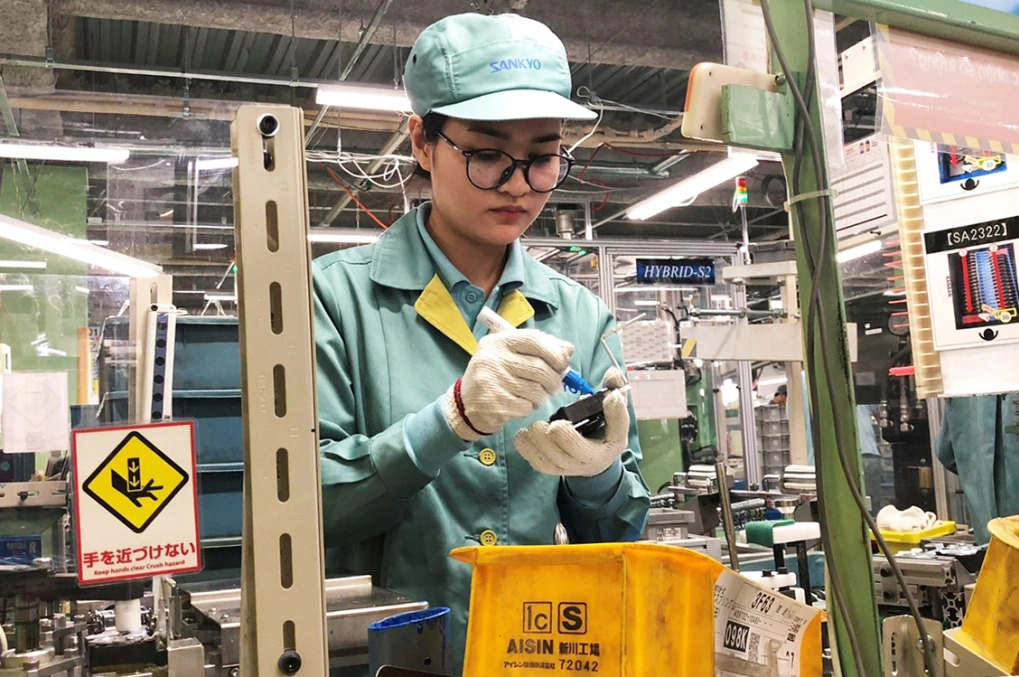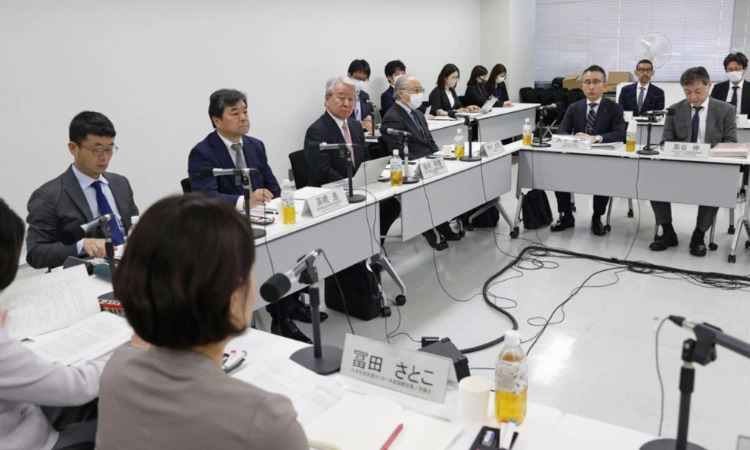The Japanese Embassy in Vietnam held a seminar on 30/7 to introduce a new employment program, the "ESD" (Ikuseshuro - Employment Skills Development) program, to replace the former technical intern training program. The program aims to "train and secure human resources in fields where Japan faces labor shortages."
The ESD program is expected to be implemented in 2027. Under the new program, Japan proposes that fees paid by ESD workers to intermediary, brokerage, and dispatch organizations for working in Japan should not exceed two months of their salary in Japan.
This amount is calculated by doubling the monthly salary stated in the ESD plan. Dispatch companies and organizations must publicly disclose the standards for calculating these "departure fees" collected from ESD workers on the internet or through other suitable means.
 |
Vietnamese workers in Japan, 2022. Photo: Thai De |
Vietnamese workers in Japan, 2022. Photo: Thai De
To ensure the new program's proper implementation, Japan proposes signing bilateral cooperation agreements with sending countries. These agreements will establish mechanisms to prevent unreasonably high fees charged by dispatch organizations.
Besides capping fees, the ESD program commits to improving worker rights, working conditions, and wages. If a dispatch company charges exceeding two months of an ESD worker's salary or engages in related misconduct, Japanese labor authorities will reject or revoke the organization's labor dispatch plan.
The former technical intern training program did not cap fees paid by workers to dispatch companies for working in Japan.
Statistics indicate that foreign workers often pay fees equivalent to one to three months of a Japanese trainee's salary to dispatch companies. Japan recognizes that the substantial debt burden foreign workers incur to work in Japan, coupled with unmet job expectations, is a root cause of illegal work and criminal activity.
 |
Expert panel reviewing the technical intern training program in Tokyo, 2023. Photo: Kyodo |
Expert panel reviewing the technical intern training program in Tokyo, 2023. Photo: Kyodo
According to a 2023 survey by Japan's Ministry of Health, Labor and Welfare, the average monthly wage for technical intern trainees was 181,700 yen (approximately 1,200 USD).
A 2022 Nikkei survey found Vietnamese trainees paid an average of 688,000 yen (4,600 USD) to labor dispatch and coordination organizations before arriving in Japan. For intermediary companies separate from government-approved coordinators, 17% of Vietnamese trainees paid an average commission of 446,000 yen.
Vietnam currently has over 203,000 technical intern trainees working in Japan, the highest number among sending countries.
Japan established the technical intern training program in 1993 to "transfer knowledge and skills to developing countries." However, the program has been criticized as "modern-day slavery," providing a cover for Japanese companies to recruit cheap labor from across Asia.
The ESD program follows a June 2024 amendment passed by the Japanese government, aimed at fundamentally changing the technical intern training system. However, no official changes have been announced yet. The Japanese Embassy stated that these proposals will continue to be developed until the new program launches in 2027.
Duc Trung












